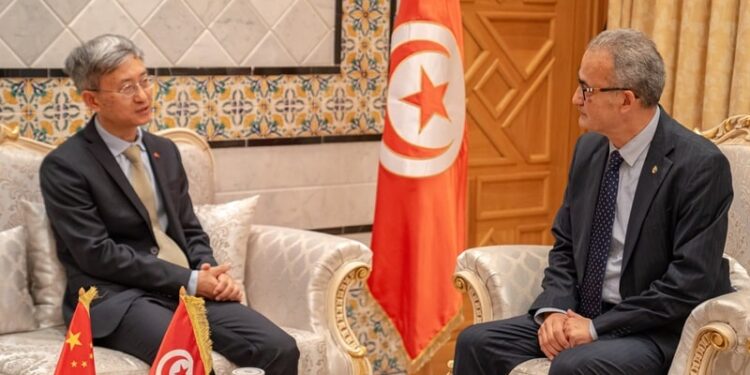Mr. Mohamed Ben Ayed, Secretary of State to the Minister of Foreign Affairs, met on Thursday September 11, Sem Wan Li, Chinese ambassador to Tunisia. The discussion focused on the strengthening of the legal and institutional framework to facilitate access to Tunisian products to the Chinese market, taking into account obstacles on the Chinese side and Tunisian internal limitations.
Tunisian export statement
Despite a global growth in exchanges, Tunisian exports remain modest:
- 2023: around 80 million dinars
- 2024: bilateral exchanges of 9.2 billion dinars, including only 2% Tunisian exports, illustrating a commercial imbalance
- 2025: upward trend, but the Tunisian share remains weak
Main bilateral obstacles
- Chinese side: strict health and phytosanitary standards, complex customs procedures
- Tunisian side: limited port infrastructure, insufficient preparation for businesses, difficulty complying with international standards
Example: olive oil
Tunisian olive oil, a flagship product with high demand in China, comes up against major brakes: limited bottling units, compliance with Chinese standards and access to limited financing. These constraints limit its competitiveness and its presence on the Chinese market, according to Reuters.
Perspectives and challenges
- For Tunisia: secure and increase exports, improve compliance with standards and strengthen the competitiveness of products
- For China: benefit from a stable and predictable commercial environment
- Shared objective: to transform diplomatic partnership into sustainable economic cooperation, with a solid legal framework to reduce bilateral obstacles and support Tunisian exporters.








